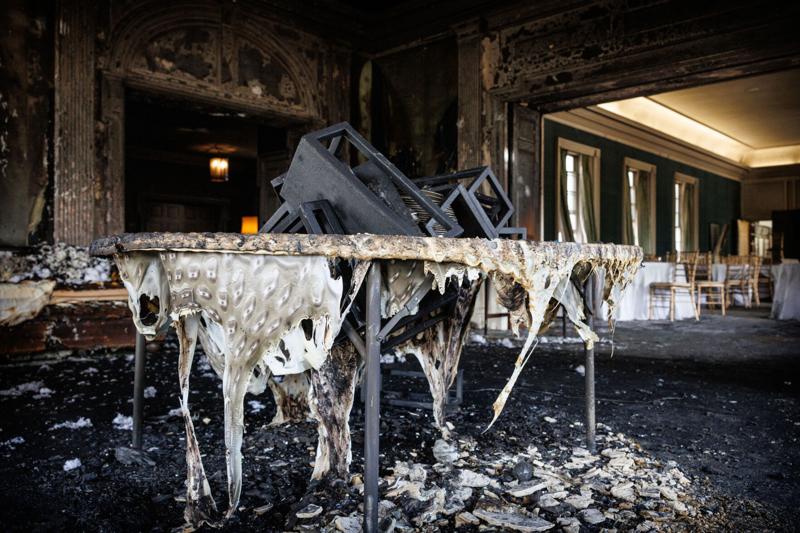Gov. Josh Shapiro provided an update on investigations into the arson that occurred at his Harrisburg residence over the weekend.
His update comes after details about the case, and with them about the alleged attacker Cody Balmer, have come to light – including that he was struggling with acute mental illness.
A potential motive for the crime was mentioned in a search warrant obtained by PennLive. It stated that in a 911 call following the attack, Balmer said that he “will not take part in his plans for what he wants to do to the Palestinian people.”
Shapiro has distanced himself from controversial writing on the topic of Palestine during his college career, however he has indicated support for Israel’s prosecution of the war and advocates for a two-state solution.
When asked his thoughts on the revelation that the Israel-Hamas War was a potential motive for the crime, Shapiro said, “I choose not to participate in that.” He emphasized that people from all faiths and political backgrounds had offered support to his family.
“I said after the assassination attempt on the president in Butler, I said in Altoona after we captured the individual who shot and killed the US Healthcare CEO, and I said on Sunday that this violence has no kind of place in our society regardless of what motivates it,” said Shapiro. “This is not how we resolve our differences.”
He said he would leave it to the prosecutor, Dauphin County District Attorney Fran Chardo, to determine whether the act falls into the category of hate crime, calling him a “top-notch prosecutor.”
Chardo, according to WGAL, stated that “We will use the statement [by Balmer] regarding Palestine as evidence the defendant targeted the Governor because he is Jewish. We allege that this was a hate crime. Of course, the defendant is presumed to be innocent.”
It isn’t clear whether Balmer’s statements were limited to the governor’s stance on Palestine, which is a political viewpoint – not a religious, national, or ethnic identity protected by hate crime and ethnic intimidation statutes.
Israeli Jews and people across the Jewish diaspora remain deeply divided over the nation’s treatment of the Palestinian people. A poll from the Pew Research Center last year revealed a deeply nuanced ideological landscape.
Some have speculated that the District Attorney’s office has additional information pointing to stronger evidence for ethnic intimidation, especially given the timing of the crime over Passover. For their part, Balmer’s family has pointed to his uncontrolled mental illness as the primary driver in his crime.
The distinction between political opinion and religious belief, however, has not been one that has been clarified often since the start of the Israel-Hamas war, neither in the media nor by American and Israeli politicians.
Advocates for Palestine have raised concern that their opposition to Israel’s policies, especially as expressed in nationwide protests, have been conflated with hatred toward the Jewish people.
At the same time, a rise in antisemitic attacks has heightened tensions in the nation, and Jewish people have expressed safety concerns, particularly on college campuses.
Since the start of the Trump administration, several pro-Palestinian student demonstrators have been detained by Immigration and Customs Enforcement or had their visas revoked. Their supporters say they have not acted outside the law and have not been afforded due process.
The president has also frozen funding to prominent universities for perceived tolerance for the war protests. Earlier this month, UCLA doubled down on its efforts to combat antisemitism after millions of dollars in federal funds were revoked from Columbia University.
Meanwhile, Harvard faces a $2 billion funding loss from the federal government after it stood by diversity, equity and inclusion policies that the Trump administration says have encouraged anti-Jewish sentiment to flourish.







